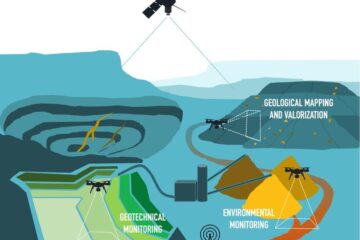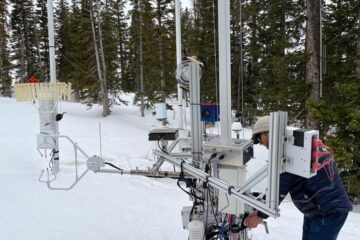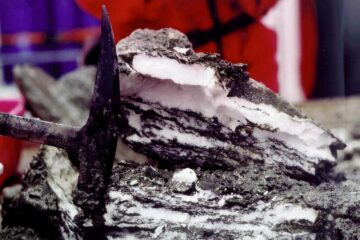Earth Sciences
Earth Sciences (also referred to as Geosciences), which deals with basic issues surrounding our planet, plays a vital role in the area of energy and raw materials supply.
Earth Sciences comprises subjects such as geology, geography, geological informatics, paleontology, mineralogy, petrography, crystallography, geophysics, geodesy, glaciology, cartography, photogrammetry, meteorology and seismology, early-warning systems, earthquake research and polar research.

Using satellite data to improve mining safety
EU research project MOSMIN to monitor and secure mining-related deposits. Mining remains essential to meet the growing demand for raw materials. But there are potential environmental risks associated with mining,…

The science behind snowflakes
In a study that could enhance weather forecasting, Utah researchers discover that how snowflakes move is astonishingly predictable. Tim Garrett has devoted his scientific career to characterizing snowflakes, the protean…

Hydrothermal Mercury – the natural story of a contaminant
An international team of researchers including the GEOMAR Helmholtz Centre for Ocean Research Kiel has produced the first global estimate of mercury emissions from hydrothermal sources at mid-ocean ridges based…

Using a fiber optic cable to study Arctic seafloor permafrost
The Arctic is remote, with often harsh conditions, and its climate is changing rapidly — warming four times faster than the rest of the Earth. This makes studying the Arctic…

Climate change could trigger methane release from the deep ocean
New research has shown that methane trapped under the ocean is vulnerable to climate change and could be released into the ocean. An international team of researchers involving experts from…

Why regional differences in global warming are critical
New data analyses allow better evaluation of climate models. Scientists use climate models to simulate past climate, in order to determine how and why it has changed. As a result…